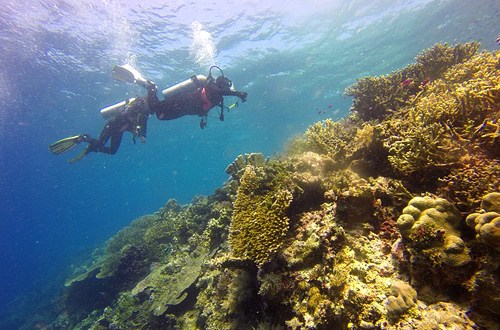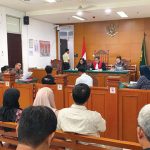Jakarta (Greeners) – Indonesia succeeded in pushing forward sustainable coastal reef management to be included in the Sustainable Development Goals (SDGs) agenda at UN Environment Assembly (UNEA-2), held on May 23-27, in Nairobi, Kenya.
Ministry of Marine Affairs and Fisheries’ expert staff for society and interdepartment relations, Suseno Sukoyono, said that positive incomes managed to be brought by Indonesia from the meetings. Indonesia, Sukoyono added, has fully support from international world on developing and managing sustainable coral reef.
“It is our success when Indonesia has managed to address a resolution on this international meeting,” he said in Jakarta, on Thursday (2/6).
Furthermore, he said that the success gave hope for coral reef protection in the world and Indonesia, specifically as the country is home for 14 percent of world’s coral reef population. In addition, Indonesia is also home to 82 out of 84 genuses of world’s coral reefs.
Apart from excessive exploitation, natural factor and climate change, plastic waste thrown in the ocean, also threaten coral reefs.
To tackle these issues, Laksmi Dewanti, Ministry of Environment and Forestry’s expert staff for Industry and Commerce, said that waste and plastic issues of the oceans were also becoming one of the concerns resulted to become one of the resolution, along with coral reef management.
“Plastic waste has become world’s issues because 15 percent of waste thrown into the ocean has cause parts of coral reef ecosystem covered in plastics,” said Dewanti.
To support maritime sovereignty and to achieve the target for Indonesia as Home of Coral Reef, the government will be developing education center for coral reef. The center, dubbed as Coral Triangle Information and Learning Center (CTI Learning Center), will be built in Manado of North Sulawesi province.
Meanwhile, secretary general at the marine affairs and fisheries ministry, who is also acting director general of marine spatial planning, Sjarief Widjaja, said that the building inauguration marked the start of Regional Secretariat Coral Triangle Initiative Coral Reefs, Fisheries, and Food Security (CTI-CFF) activities.
“The building will be the heart of operational to achieve targets of CTI-CFF and other activities to protect coral reefs, coastal fisheries, and other marine resources,” he added.
Reports by Danny Kosasih



















































